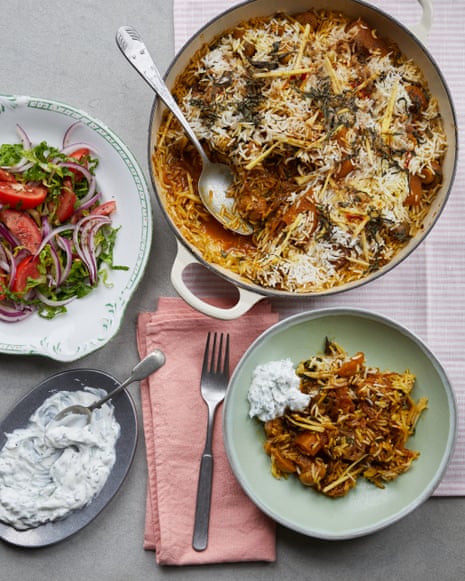Just off the busy scenes of Viale Marconi, within the more tranquil Via Gerolamo Cardano in Rome, you’ll find Albanesi – a bakery whose reputation stretches far beyond its local neighbourhood. Known as “the oven of wonders,” this family-run institution, founded by Aldo Albanesi in 1959 and now operated by his sons Adriano and Alessandro, has become a symbol of tradition and abundance. According to regular customers and international visitors alike, the scale and diversity of Albanesi’s offerings make it stand out even among the fierce competition of Italy’s famed bakeries.
Behind its impressive 11-window façade is a sprawling, 500-square-metre wonderland, bustling with activity. From bread to pizza, pies to cakes, biscuits to fresh egg pasta, the bakery produces nearly everything from scratch. Walk among the glass-fronted counters and you’re met with a colourful display—cheeses, preserves, cured meats, and a wide array of pickled or marinated vegetables line up beside pantry staples of notable quality. Clearly, the shop caters to all tastes and needs, from everyday essentials to special indulgences.
For West African readers—especially those in Nigeria and Ghana, where vibrant food markets and family-run stores are a deep part of the cultural fabric—such a business feels remarkably familiar. According to food researcher Ifeanyi Okafor, “The sense of community and tradition that defines shops like Albanesi resonates in many African settings. Our own open markets—like Balogun Market in Lagos or Makola in Accra—similarly offer variety born from years of tradition.” These commonalities highlight the universal language of food, especially where family and entrepreneurship meet.
Albanesi is also celebrated for its specialty pastas, especially acini di pepe—tiny, round pastas reminiscent of peppercorns, traditionally made of durum wheat. Another favourite, pastina, is a small pasta most commonly used in soups or as a creative filling for vegetables. These miniature shapes are not just Italian delicacies; they often appear in innovative adaptations on West African dining tables as well. “We’ve started incorporating pastina into light pepper soups, offering children a fun alternative to rice or yam,” says Abuja-based chef Bunmi Agbaje.
The author’s path first crossed with Albanesi while searching for unique pasta shapes for a cookbook project. The quest turned up stelline (stars), alfabeto (letters), puntine (dots), and risoni (grains similar to orzo, although the Italian “orzo” actually means barley). This culinary adventure highlights an important theme—how discovering new ingredients can lead to creative culinary fusions at home, a concept familiar to West Africans who continually adapt and blend cuisines.
Now let’s bring this cross-cultural spirit into our own kitchens. A classic Italian-inspired recipe—red peppers stuffed with orzo, tuna, capers, and fresh herbs—bridges the gap between familiar and new. In Nigeria and Ghana, peppers feature heavily in local dishes, from jollof rice to ata rodo sauces. Stuffed peppers may not be a staple, but the idea of using seasonal vegetables as edible bowls—think of baked plantains, stuffed yam, or okra pockets—is right at home.
Enjoying peppers this way is not only convenient but also practical for warm climates: simply refrigerate them if not serving immediately, and bring them to room temperature (or gently reheat) when ready. According to Lagos-based nutritionist Amara Nwankwo, “These kinds of dishes are perfect for our busy lifestyles—they’re healthy, adaptable, and keep well for family lunches or special occasions.”
Red Peppers Stuffed with Orzo, Tuna, Capers, and Herbs
Serves 4
Ingredients:
- 4 medium red and/or yellow peppers (choose ones similar in size for even cooking)
- 300g orzo (or substitute with rice-shaped pasta, small local pasta, or even millet for a more indigenous flair)
- Extra-virgin olive oil
- Butter
- 1 red onion, peeled and diced
- 1 garlic clove, peeled and minced
- 1 handful of fresh parsley, chopped
- 1 medium tomato (or several cherry tomatoes), finely chopped
- 100g canned tuna in olive oil, drained (sardines or mackerel work well in Nigerian adaptations)
- 1 heaped tablespoon of small capers (or pickled garden eggs for a local twist)
- 2 anchovy fillets, minced (optional; swap for smoked crayfish or dried fish for West African flavour)
Method:
- Slice the peppers in half lengthwise through the stalks. Remove the seeds and white pith to create neat ‘boats’ for stuffing.
- In a pot of salted water, parboil the orzo. If the pack says 10 minutes, cook for only 5, then drain well.
- In a frying pan, heat a mix of olive oil and butter. Saute the diced onion and minced garlic until soft and translucent.
- Add the par-cooked orzo, parsley, chopped tomatoes, drained tuna, capers, and anchovies (or your preferred substitute). Mix well and taste for seasoning. Salt may not be needed if anchovies or salted fish are used; finish with plenty of cracked black pepper.
- Fill the pepper ‘boats’ generously with this mixture. Arrange them snugly in a baking tray so they stay upright.
- Add three tablespoons each of water and oil to the baking tray base. Cover with foil, sealing loosely but thoroughly.
- Bake in a preheated oven at 180°C (160°C for fan ovens) or 350°F (gas mark 4) for 40 minutes. Remove the foil for the final 10 minutes to allow the tops to brown slightly.
- Once cooked, drizzle with more olive oil, a spoonful of melted butter with extra anchovies (if desired), or top with a thin swirl of basil pesto diluted with olive oil. Garnish each with a fresh basil leaf or scent leaf—a herb widely enjoyed in West Africa.
Tips for the Nigerian kitchen:
- Swap ingredients—If orzo or other Italian pastas are hard to find, try small local grains such as millet, couscous, or broken rice.
- Fish flexibility—Use locally available fish like smoked mackerel, sardines, or dried crayfish for added flavour and an African twist.
- Herbs matter—Swap parsley for scent leaf or ugu, both beloved in West African cuisine and widely available at local markets.
- Add some spice—Toss in chopped scotch bonnet or ata rodo for a spicy kick, as many Nigerians prefer their meals fiery.
This creative approach to stuffed peppers doesn’t just pay homage to Italian classics; it highlights the adaptability of everyday ingredients across cultures. By experimenting with what’s local and fresh, anyone can enjoy a dish that feels both international and distinctly Nigerian (or Ghanaian), making good use of what’s available while celebrating the diversity of world cuisine.
As globalisation and migration increase the movement of food traditions, more West African cooks are exploring international influences. According to culinary historian Chidera Ekene, “Our people are naturally creative in the kitchen. Dishes like this encourage that spirit, allowing us to blend local produce with global trends in fresh, exciting ways.” Expanding our cooking horizons strengthens our rich culinary identity while forging connections with traditions from all corners of the globe.
What local ingredient would you use to give this recipe your own Nigerian or Ghanaian twist? Have you tried stuffing peppers with rice, yam, or beans? Do you have a family recipe that blends African and international influences? Drop a comment and share your favourite food fusions. Keep an eye out for more recipes that bring the world to your kitchen!










